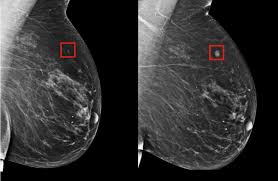Source: techgenyz.com
Artificial intelligence has transformed our world drastically. And this fact is more than evident by just taking a look around. Every device or technology that is surrounding us is becoming in ways powered by artificial intelligence. Be it our smartphone, mobile applications, software, websites, smartwatches or IT services like healthcare. Artificial intelligence is penetrating every other industry and impacting it in several ways.
AI making lives easier
With the goal of making things much simpler and uncomplicated, AI along with machine learning is helping industries become more efficient and fastidious. Some of the brightest concepts of artificial intelligence that were just blossoming ideas a while back are now hardcore realities.
While this is helping organizations and institutions advance their goals in their fields, it is ultimately aiding the end customers to get better facilities, products, and services. But, as many people as you will find telling the good tales of artificial intelligence, so will you find those who are skeptical about it.
Even though artificial intelligence-powered programs and tools are helping businesses automate tasks, improve efficiencies, reduce costs and most importantly reduce the burden of an employee’s shoulders, there are people who fear it might take away jobs and reduce the aspect of human touch from a product or service.
But, as soon as the people realize that AI exists to aid them and not replace them, it would be easier to deploy the actual benefits to the customers. Take the healthcare industry as an example. The healthcare sector is a classic example where the cutting edge technology of artificial intelligence is out to the best at use.
Artificially intelligent healthcare
To begin with, it is helping the medical staff and institutions like hospitals and clinics across the world manager patient and staff more efficiently. They have a real-time hospital management system, which can basically predict the number of patients on a particular day. With historic and current statistics in the picture, AI can make this possible and help realize the hospital whether they are prepared for an upcoming situation or not.
Similarly, knowing the footfall for a particular day can help manage the staff and required tools and experts in the hospital. Better management of these would ensure a better allocation of resources in the hospital, along with better facilities for the patient.
And that’s just one aspect of artificial intelligence in the field of healthcare. Another is the diagnosis of diseases where artificial intelligence is providing to be far more comprehensive and efficient than the existing traditional methods.
Especially talking about rare lethal diseases like breast cancer, where diagnosis plays one of the most important roles. Not only does the part of diagnosis end up utilizing a lot of money but it also yields less accurate results.
Constance Lehman, MD, Ph.D., chief of the breast imaging division at Massachusetts General Hospital (MGH) and a professor of radiology at Harvard Medical School highlights the fact that our current tools to predict the future risks are simply not accurate in healthcare.
For breast cancer, the emphasis is still on late-stage diagnosis and professionals are still not screening it as comprehensively as they should. Even the patients who do get mammograms at recommended intervals are not receiving adequate and uniform care from the radiologists.
However, connecting human intelligence to the power of clinical expertise and unparalleled data processing capabilities of machine learning like deep learning and advanced neural networks is presenting an altogether new frontier for precise and personalized medicine, diagnostics along with treatment. And once this is accomplished, it won’t be just for rare cancers but also for one in a million genetic diseases.
Moreover, using artificial intelligence and its subsidiaries to expand the healthcare industry’s capabilities for more effective screenings, reduced pain points in the care process, along with augmented clinical decision making in healthcare can help the industry save millions of dollars every year and enhance the impact of the patient’s voice in their treatment.
Talking about breast cancer, the point is that human interpretation of images is highly subjective. Moreover, institutions don’t have enough people to read these images, and even if they are found it is difficult to maintain the highest standard of reading.
According to recent research by the MIT Technology Review and GE Healthcare, it was discovered that some radiologists designate less than 10 percent of breast tissue as dense, while other radiologists will label more than 80 percent of the mammograms in the same manner.
With deep learning in the picture, full-resolution mammograms can be utilized to accurately predict the likelihood of a woman developing breast cancer. The best part is that it is accurate across all races. The research further indicates that an algorithm trained on more than 70,000 images consistently outperformed the commonly used risk model in the industry, in spite of the fact that there was no additional patient data provided to it.
Another concrete example of the study is the research by Google, where its AI has been able to detect breast cancer better than humans. The model was able to successfully spot cancer in de-identified screening mammograms, with fewer false positives and also fewer false negatives than experts.
The study published in the Nature magazine scanned data from more than 76,000 women in the UK and 15,000 women in the US. The best part of the model was that it was able to more effectively screen for breast cancer using less information than human doctors, relying solely on X-ray images, while medical experts had access to patient’s histories and mamograms.
Conclusion
Rare diseases like breast cancers require more comprehensive diagnosis and treatment than any other condition. The current medical challenges are huge in terms of diagnosis, treatment, and costs, but with AI in the picture not only can the level of treatment be enhanced but also many precious lives can be saved.


